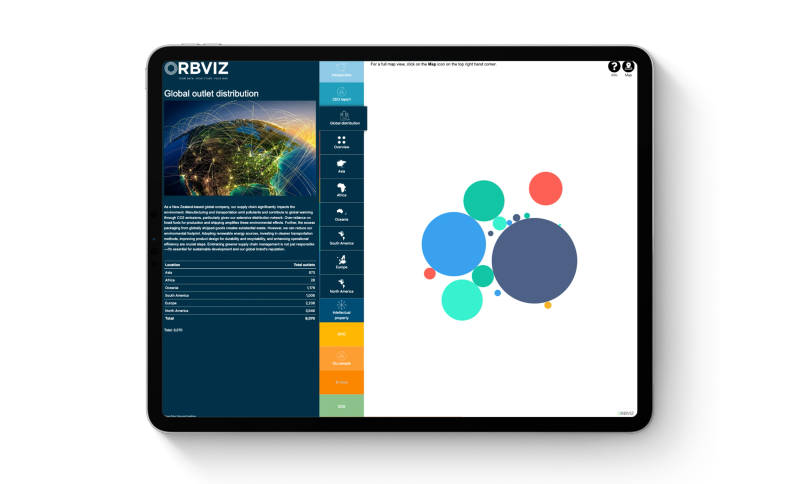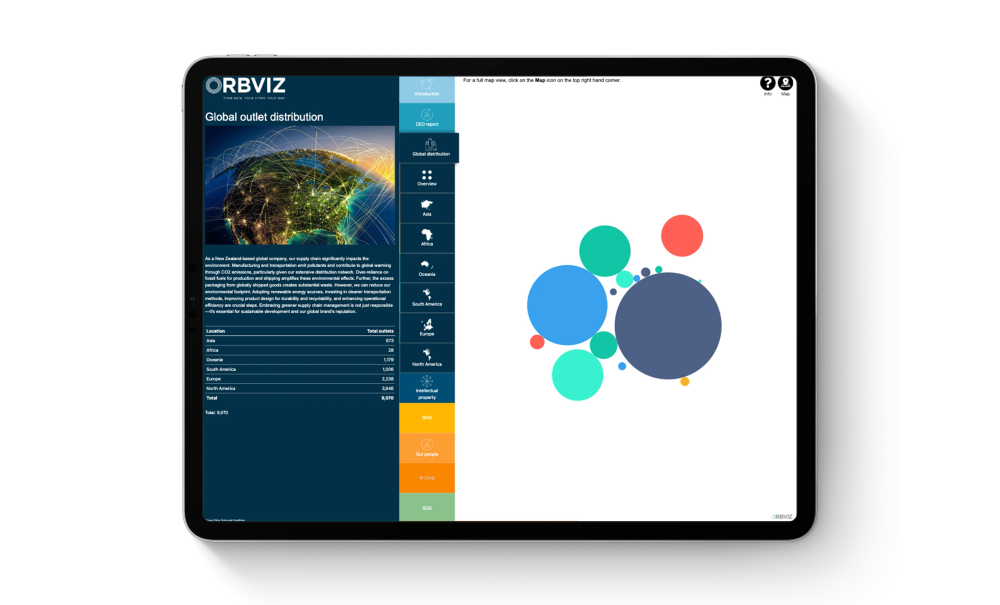Obligation meets innovation: Get your sustainability reports out of the too-hard-basket

Governments around the world are making sustainability reporting mandatory. In New Zealand, for example, climate-related disclosures are now compulsory for large publicly listed companies, insurers, banks, non-bank deposit takers and investment managers. (1)
However, even with these legislative mandates, global business is dragging its feet. A recent KPMG (NZ) survey of Sustainability Reporting 2022 (2) shows New Zealand's rate of progress in sustainability reporting is 38th out of 58 studied and may be costing the country lost opportunities. The list of ‘slow to change’ includes many who are otherwise seen as forward-thinking, socially progressive nations. What gives?
Even though organisations must adopt new compliance, sustainability reporting has internal resistance. Getting the data is hard at first, and then, once published, how do you get people to engage with it? How do you get internal buy-in, and how can it become a competitive advantage for your organisation? Sustainability reporting gets put in the too-hard basket aka ‘the round filing cabinet’ because stakeholders don’t see enough potential for meaningful change from their investment.
We believe we know why and have an innovative solution.
The personal lens gives weight to your impact
Emissions reports and sustainability audits often present data at an organisational level. This can make the content seem complex and distant and fail to engage with the people in the middle of the bell curve who make meaningful change possible.
For individuals to connect with this data story, they need a simple pathway, tailored to them. They need to see themselves in the numbers and (through that lens) see how they can enact meaningful change.
We talked with Pip Newland, Head of Sustainability at Orion, and asked why she chose Orbviz for her emissions reporting. She said it came down to three core reasons:
Simplicity
Emissions reports and sustainability audits are often weighty documents. Data reporting can appear complex to the average user when presented in a traditional spreadsheet or PDF format and be placed in the ‘too hard basket.’ An abstract storytelling approach, like we use at Orbviz, lets users get to the numbers that relate to them sooner.
Relevance
Bubbles guide the reader to the data that speaks to them. With sustainability reporting, ‘seeing oneself in the numbers’ is vital. By forming a personal connection with the information early on, there will be greater engagement across the board.
Trust
Data storytelling makes the jump from 2D information to 3D. You travel into the platform rather than searching through 100s of pages. Going from the macro to the micro at the tap of a bubble is a game changer. You find answers sooner because it creates a new level of direction and clarity. Clarity equals transparency equals trust. When people have lightning speed to insight, their understanding is more comprehensive, and so their wariness of the data lessens.
Sustain ability, both inside and outside
By publishing your sustainability diagnostics with simplicity, relevance and transparency, you are creating the framework within which to make significant improvements both internally:
- Enhance employee recruitment and retention
- Enable team members to see themselves in the data
- Empower them to take action
And externally:
- Improve the chance of securing finance
- Trade across international markets
- Secure insurance and reduce risk
- Tick the responsibility box for RFP processes
Being seen as a responsible organisation (and walking the walk) at the level of the individual is a significant component of attracting and keeping talent. By making sustainability relevant to your team and giving them an actionable journey, you make sustainability tangible and form personal connections using data storytelling.
You also present your best self for starting conversations between organisations. Responsible business practices are often best when planned and executed with other groups. Sharing data on sustainability outcomes is how we get better solutions to problems and mitigate risk together.
Take a look at your sustainability reporting through the lens of personal impact. You can experience the difference Bubbles makes for yourself. Try Orbviz right now and have your data create meaningful change.
Watch the interview with Pip Newland, Head of Sustainability at Orion here.
